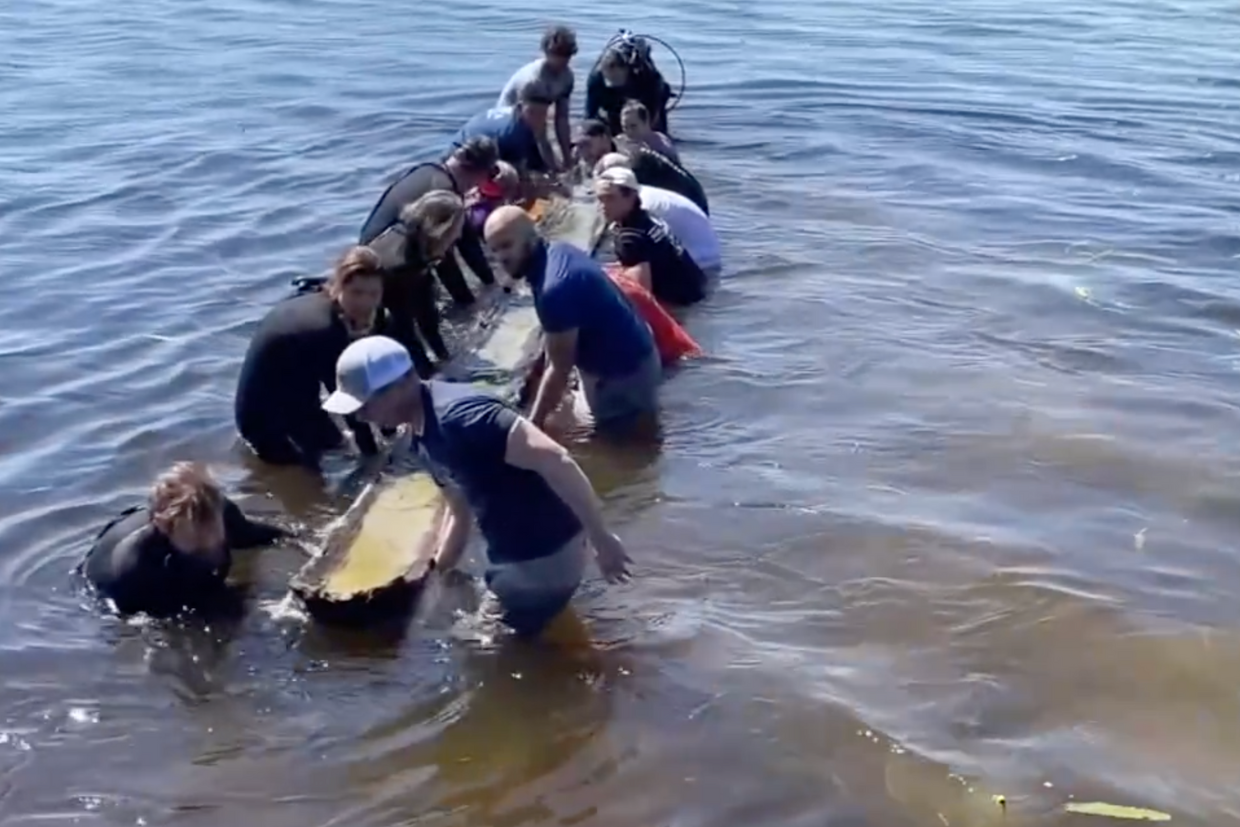
- Details
- By Darren Thompson
Waccamaw Siouan Chief Michael Jacobs told Fox News that the canoe supports the tribe’s oral history that they have been there for thousands of years.
“For years and years, we’ve always been questioned about our history and where we come from and who we are,” Jacobs said at the excavation. “Now, we have physical history to back it up.”
Eli Hill, one of the teenagers who found the canoe while swimming, said he initially thought it was a log, but when he tried to pick it up, he couldn’t.
Hill’s family contacted the North Carolina Office of State Archaeology, which sent a team to examine the canoe and move it under a dock until it could be safely excavated.
According to reports, dozens of tribal citizens of the Waccamaw Siouan Indian Tribe observed the canoe excavation, along with community members and other news media. The canoe was immediately placed in a chamber, covered and dried with towels and wrapped in plastic to prevent further deterioration. The canoe will be treated with chemicals in a lab to be preserved for future observation.
The canoe will be displayed during an open house at the Queen Anne’s Revenge Conservation Laboratory in Greenville, N.C., on April 22.
Native News Online previously reported on canoe excavations. Last year, the Ho-Chunk Nation of Wisconsin pulled a second canoe out of Lake Mendota that is at least 1,000 years old.
More Stories Like This
Native News Weekly (August 25, 2024): D.C. BriefsUS Presidents in Their Own Words Concerning American Indians
Navajo Mother Welcomes Federal Charges in 2020 Killing of Her Son
Native News Online Launches Year-End Campaign to Support ‘Warrior Journalism’
Native News Online’s Year-End Live Stream - Recap of 2025: A Night That Brings Indian Country Together
Help us defend tribal sovereignty.
At Native News Online, our mission is rooted in telling the stories that strengthen sovereignty and uplift Indigenous voices — not just at year’s end, but every single day.
Because of your generosity last year, we were able to keep our reporters on the ground in tribal communities, at national gatherings and in the halls of Congress — covering the issues that matter most to Indian Country: sovereignty, culture, education, health and economic opportunity.
That support sustained us through a tough year in 2025. Now, as we look to the year ahead, we need your help right now to ensure warrior journalism remains strong — reporting that defends tribal sovereignty, amplifies Native truth, and holds power accountable.
 The stakes couldn't be higher. Your support keeps Native voices heard, Native stories told and Native sovereignty defended.
The stakes couldn't be higher. Your support keeps Native voices heard, Native stories told and Native sovereignty defended.
Stand with Warrior Journalism today.
Levi Rickert (Potawatomi), Editor & Publisher

